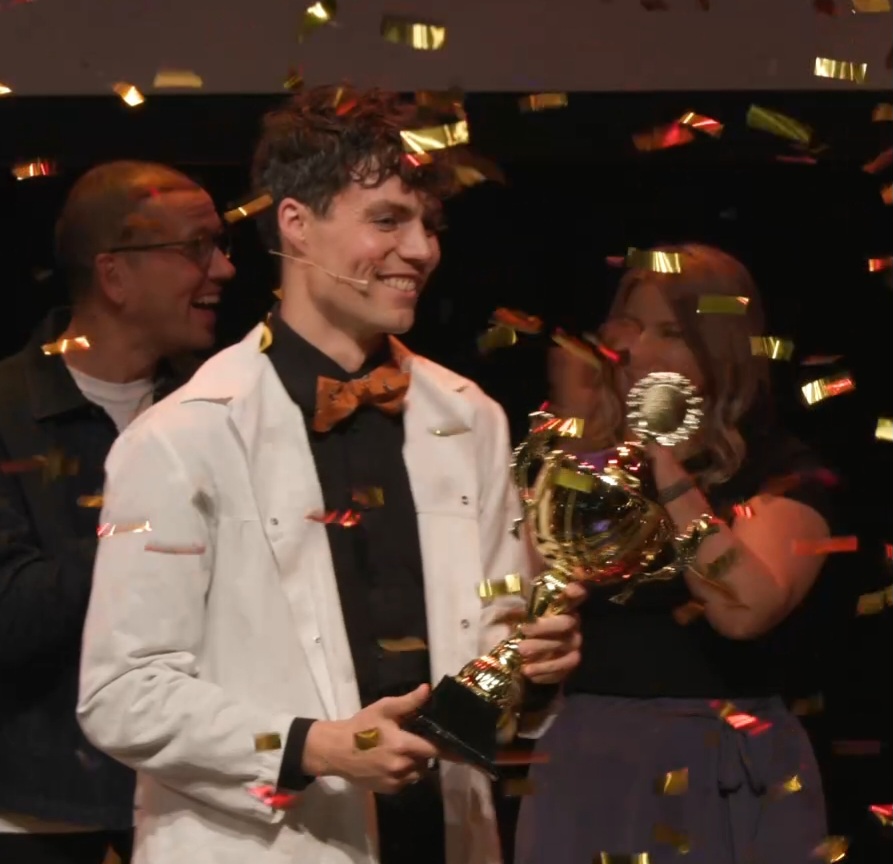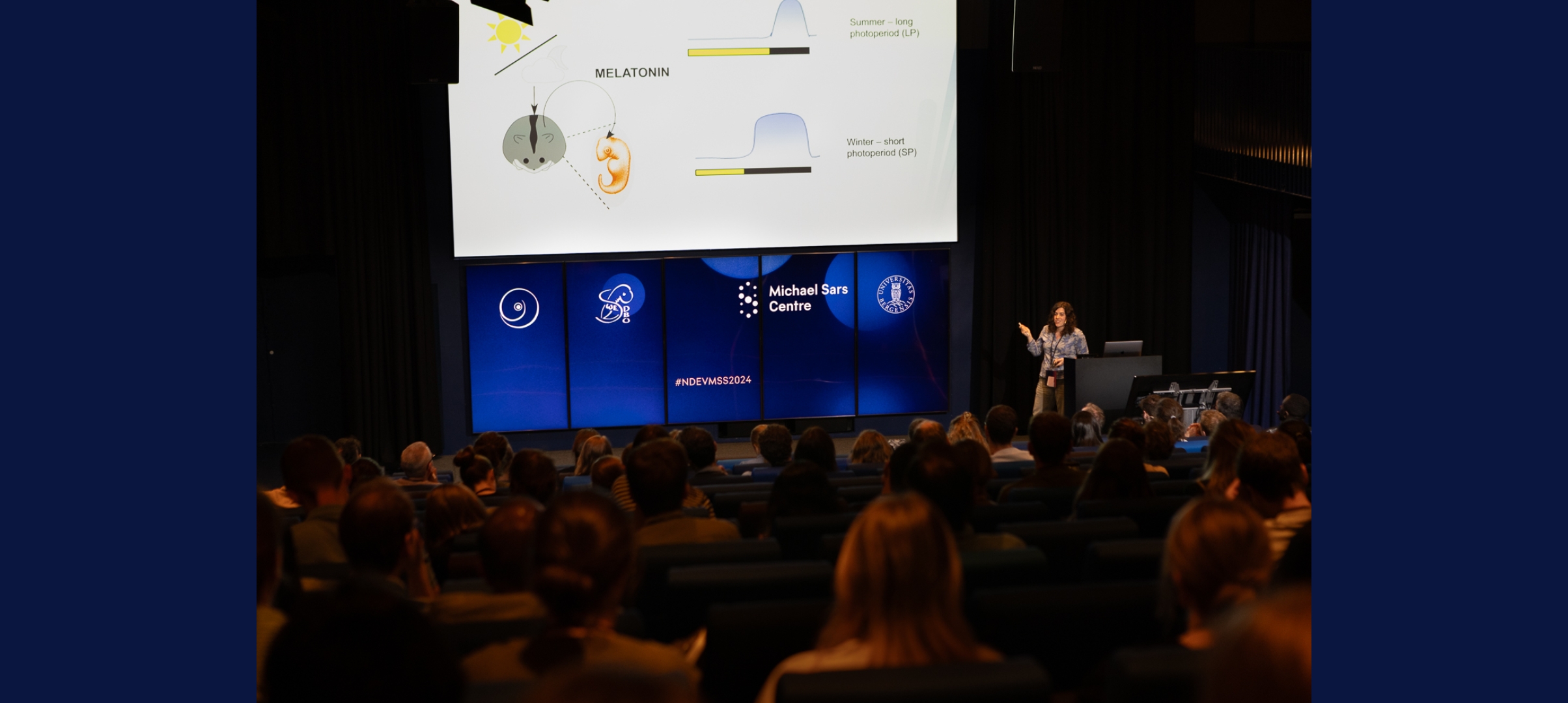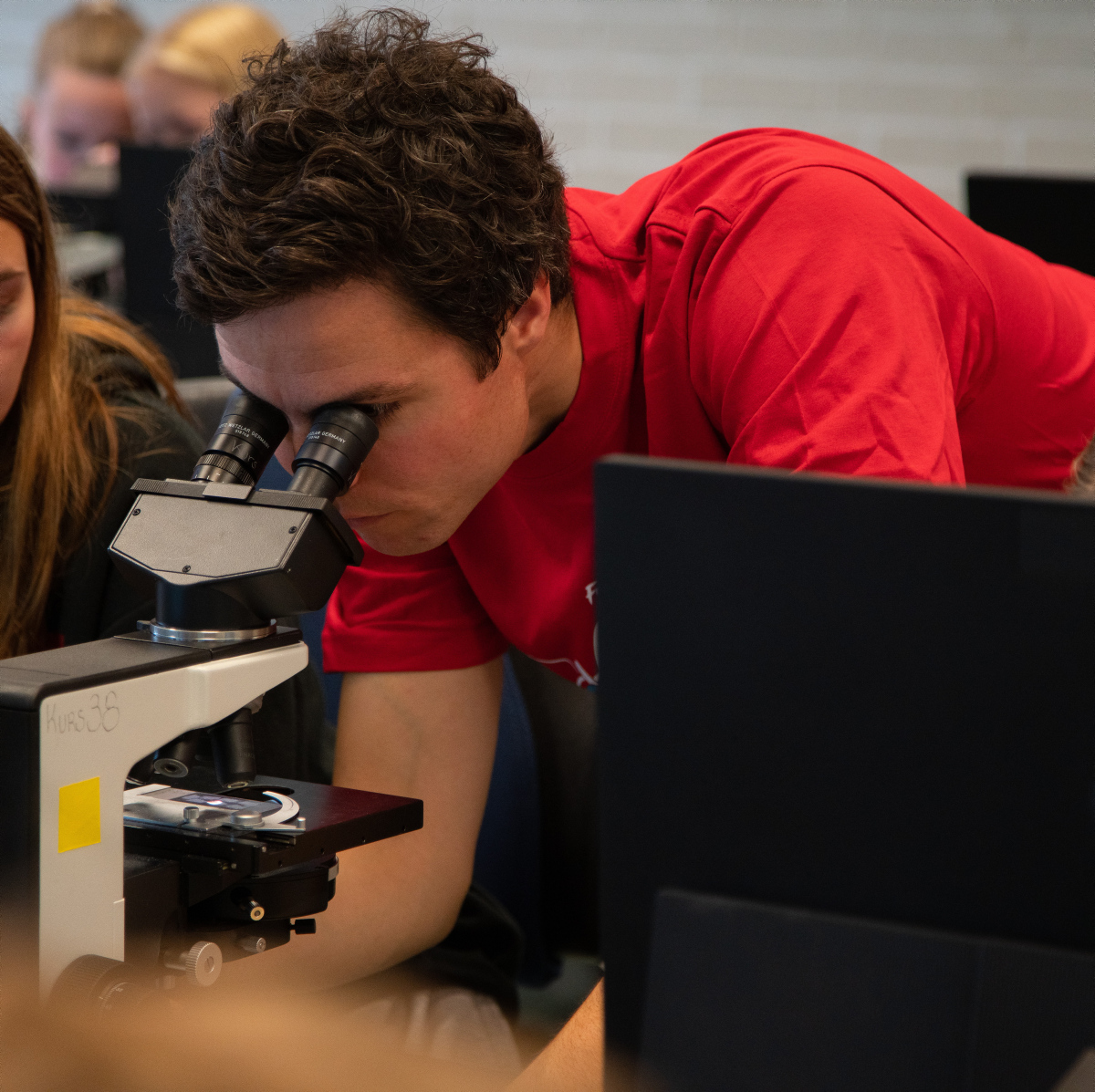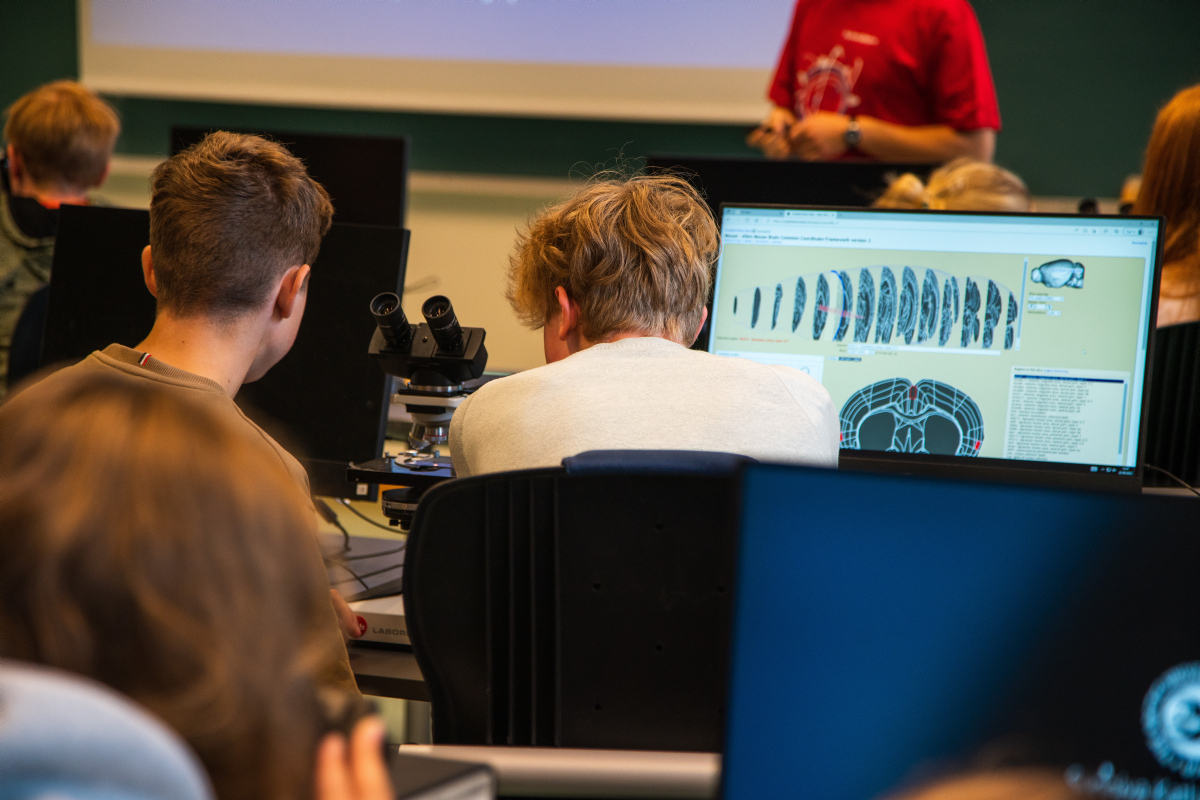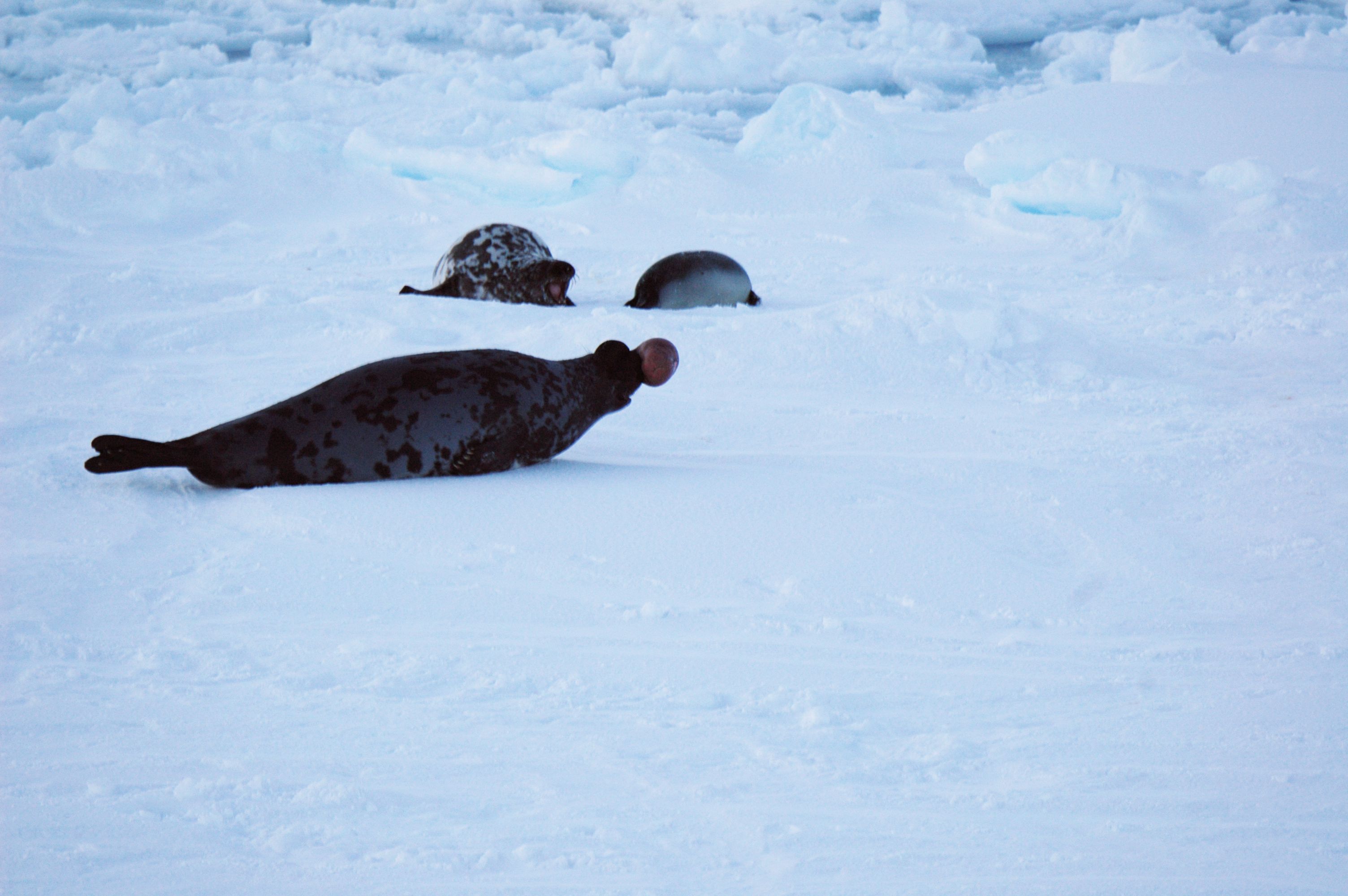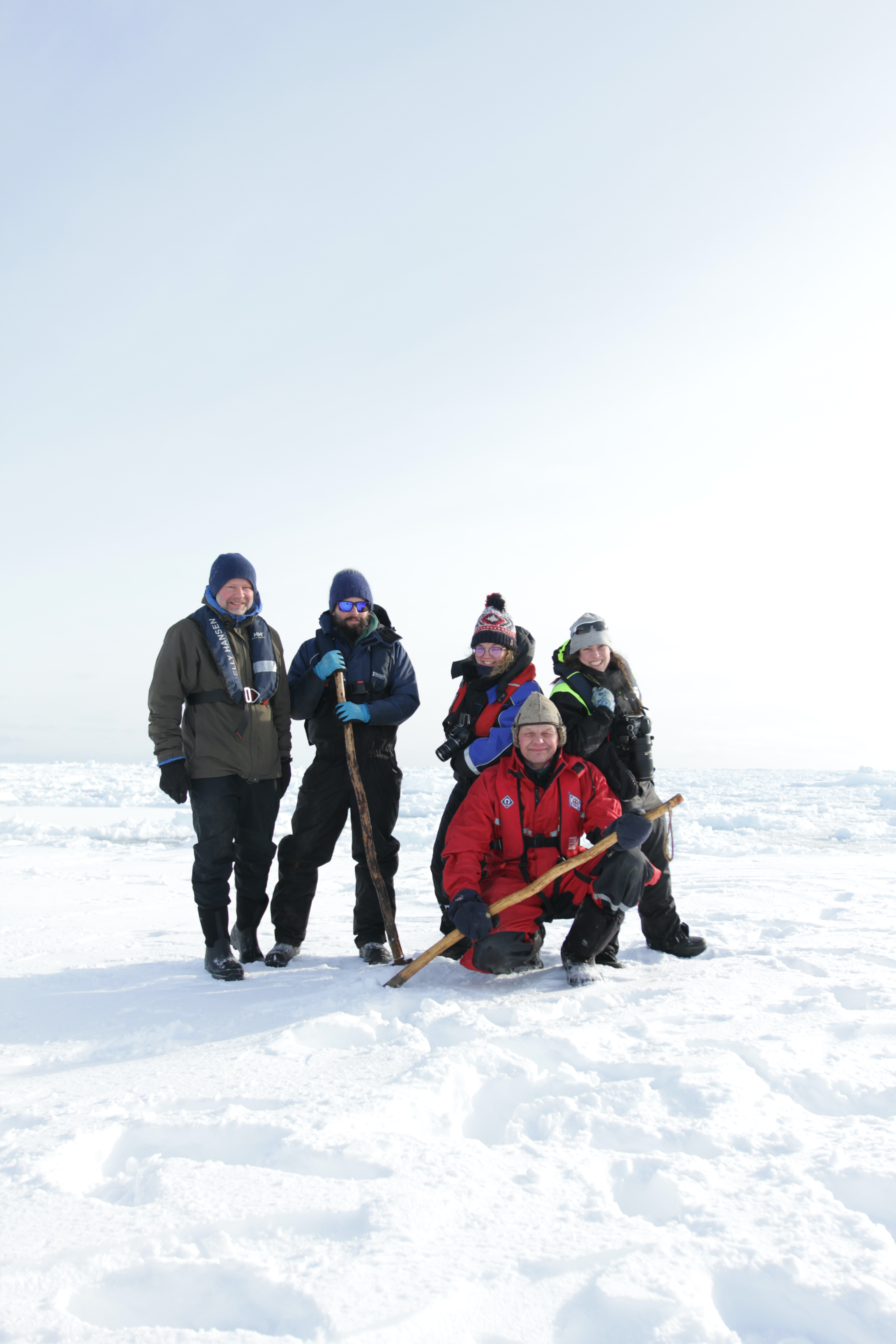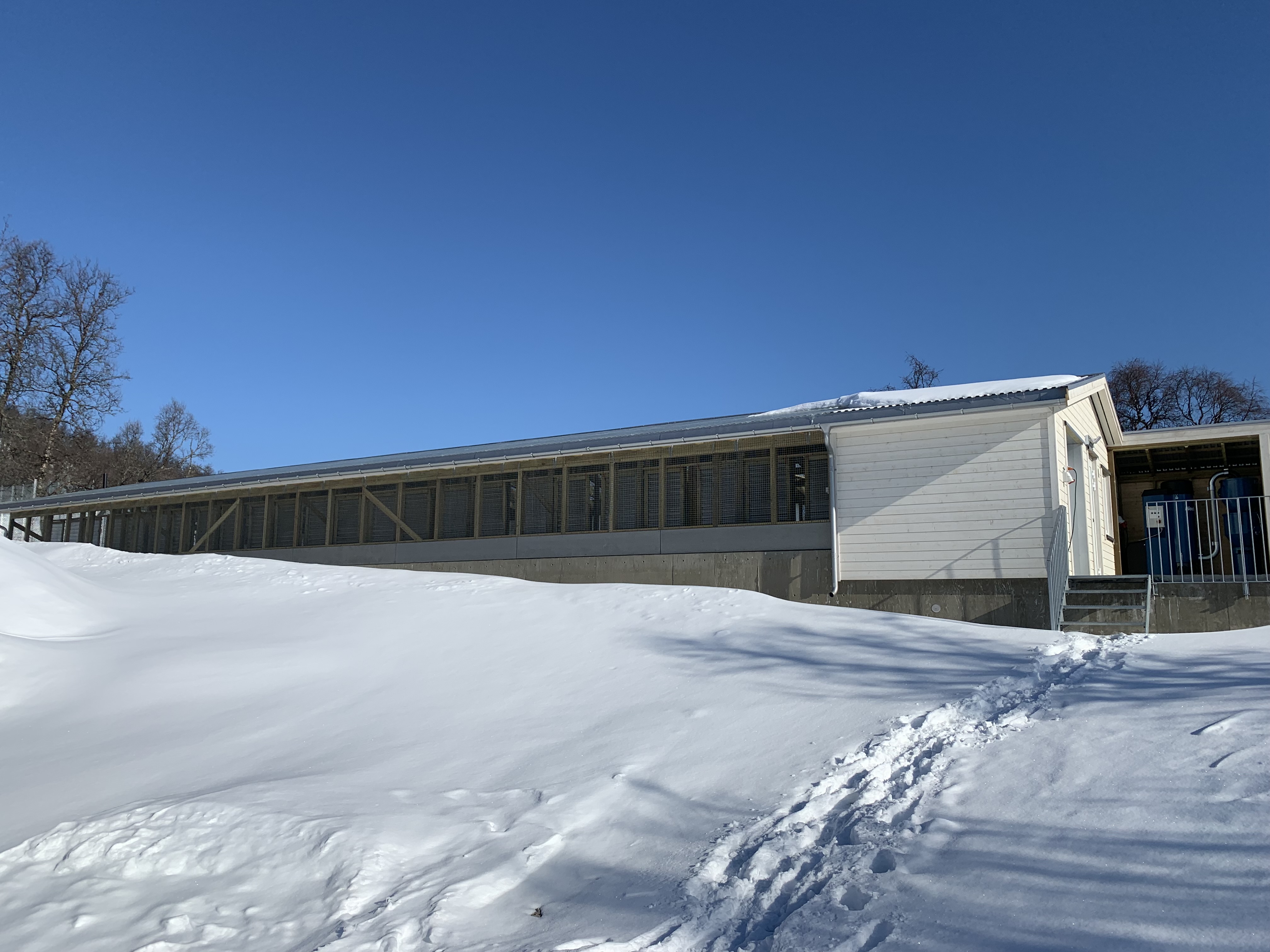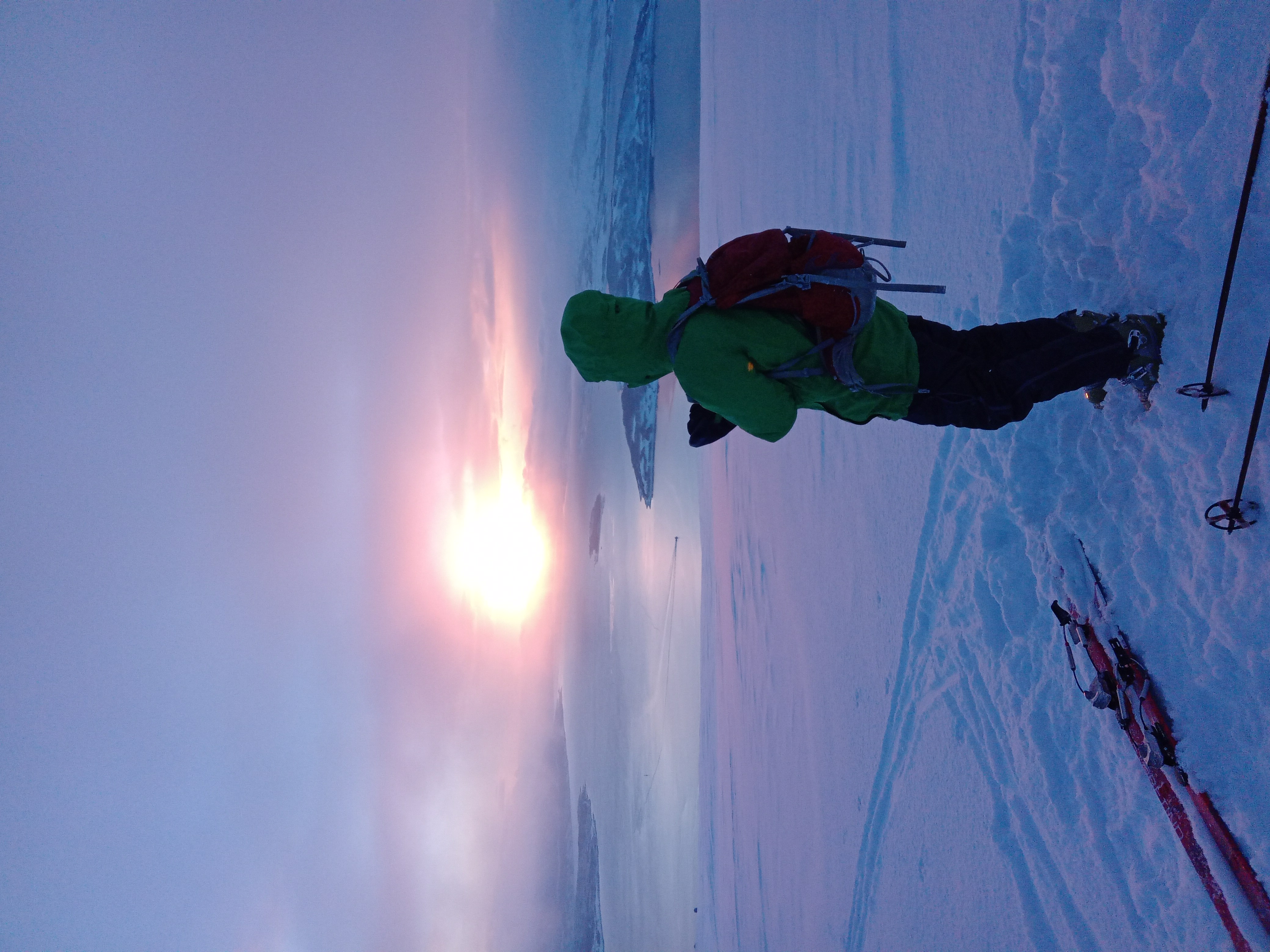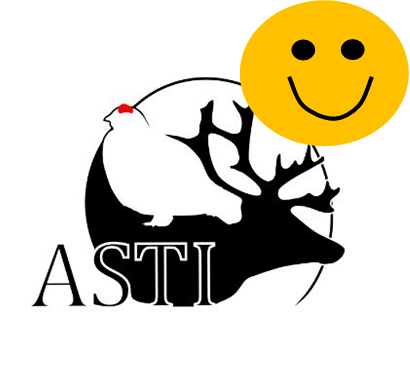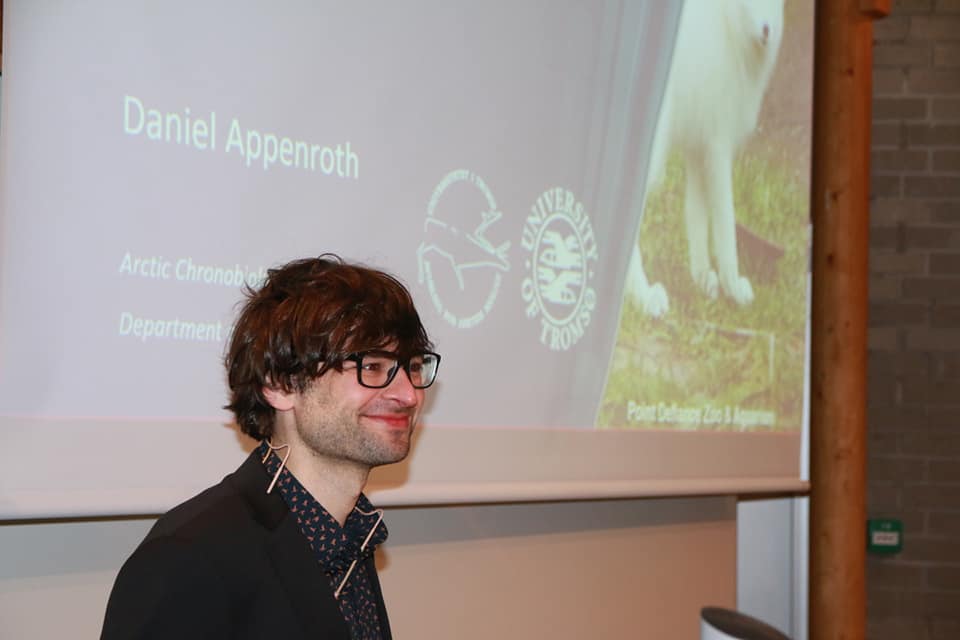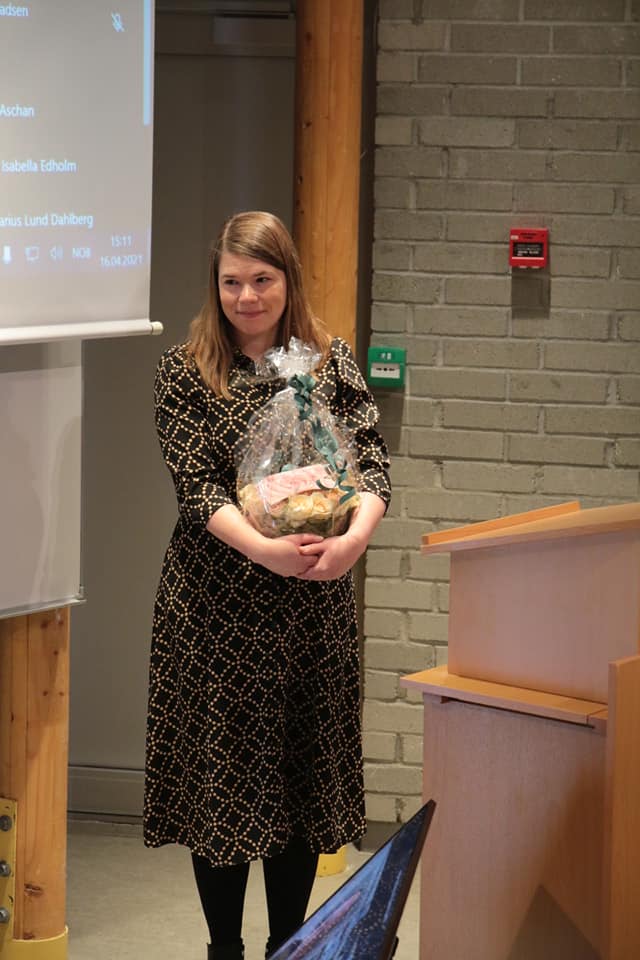A new ‘radical research ideas for early career scientists’ grant aims to find out.
News archive
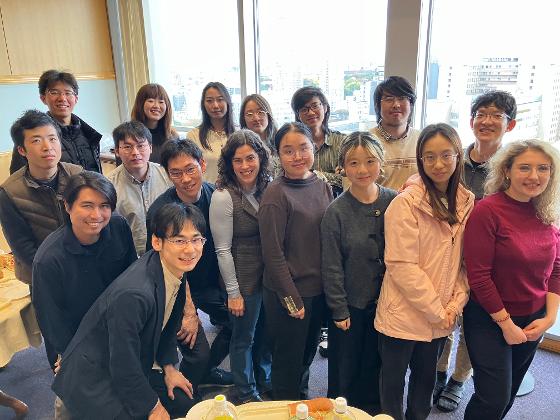
01.12.2025:
ASTI's Shona Wood is on sabbatical in Japan
Japan's leading researchers are hosting Shona on a sabbatical stay
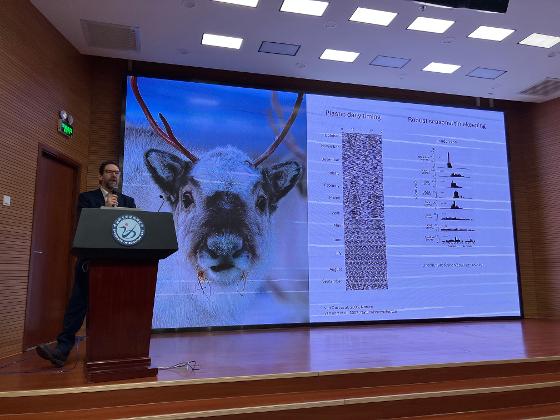
19.11.2025:
David Hazlerigg becomes a Chinese Academy of Sciences Fellow
ASTI's David Hazlerigg has been awarded the Chinese academy of sciences President's International Fellowship (PIFI).
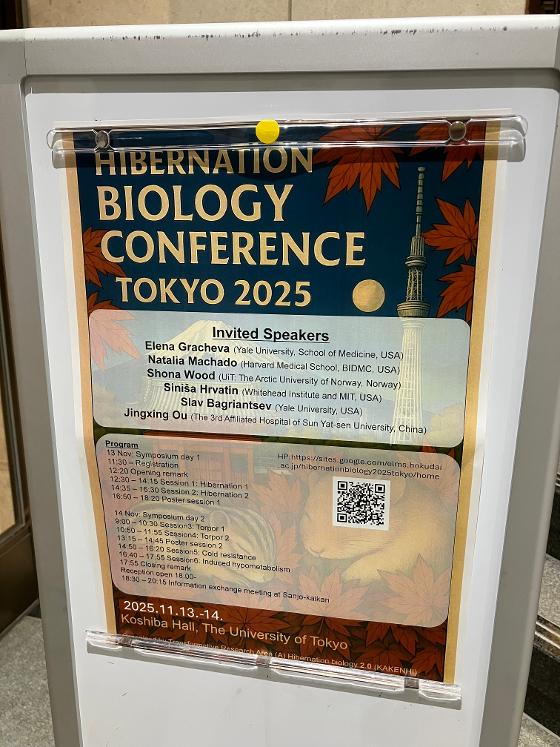
13.11.2025:
Hibernation 2.0 network Japan Conference
ASTI's Shona Wood was an invited international speaker for the Hiberntion 2.0 conference in Tokyo Japan

24.10.2025:
XVIII Latin American Symposium on Chronobiology 2025
ASTI's Barbara Tomotani was invited to speak at XVIII Latin American Symposium on Chronobiology 2025
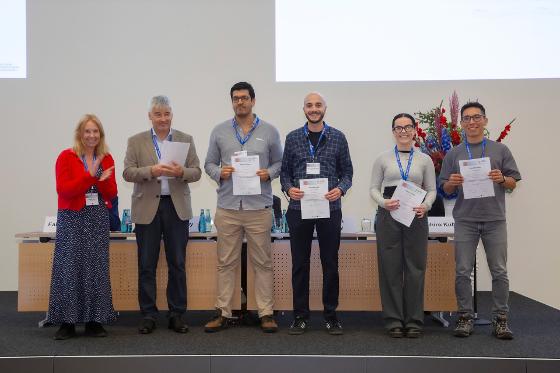
14.09.2025:
Best poster prize at IUPS 2025
Fernando Cázarez-Márquez won the comparative physiology best poster prize at IUPS congress in Germany
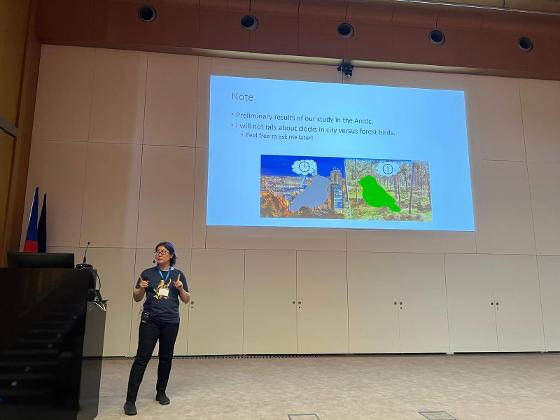
10.09.2025:
10th International Hole-nesting Birds Conference 2025
ASTI's Barbara Tomotani gives the plenary adress at the 10th International Hole-nesting Birds Conference 2025
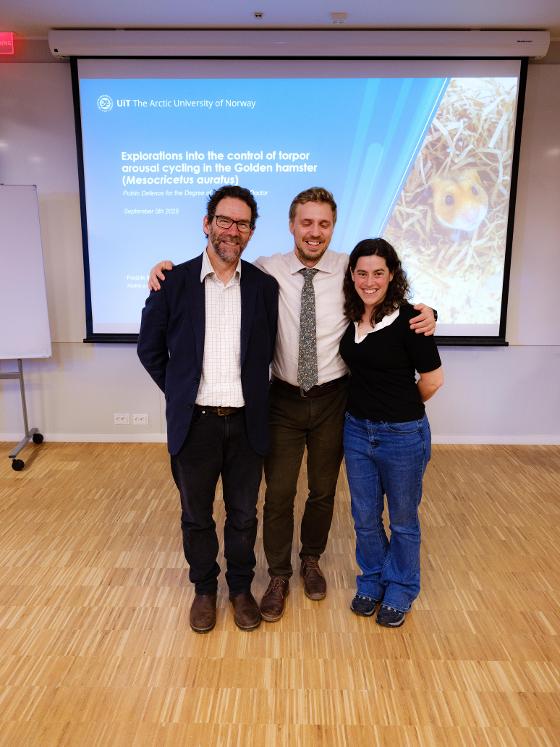
05.09.2025:
PhD successfully defended
Dr. Fredrik Markussen has successfully defended his PhD thesis: "Explorations into the control of torpor arousal cycling in the Golden hamster (Mesocricetus auratus)"
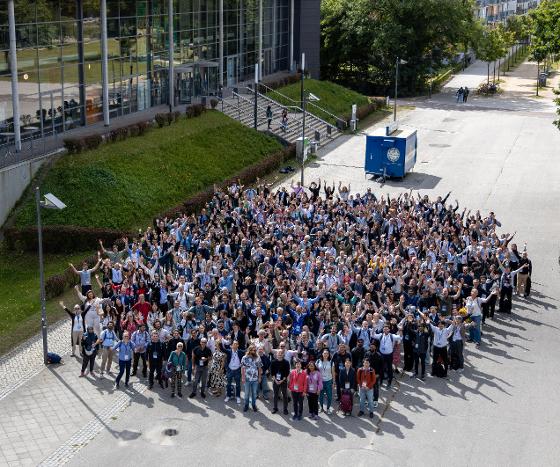
28.08.2025:
European Biological Rhythms Society meeting
ASTI was strongly represented at the European Biological Rhythms Society meeting in Lubeck
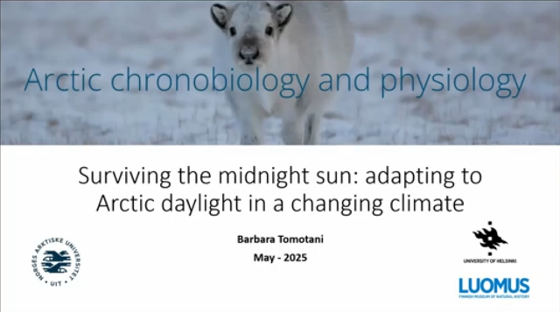
22.05.2025:
Surviving the midnight sun
ASTI's Barbara Tomotani was the keynote speak at the Daylight academy Annual conference
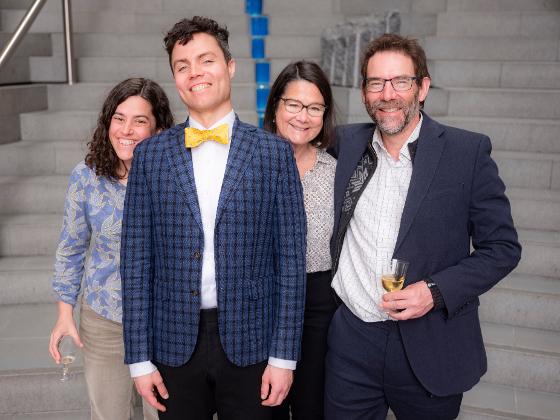
20.05.2025:
PhD successfully defended
Dr. Vebjørn Melum has successfully defended his PhD thesis: "Rheostasis and timing: A tanycyte-mediated process"

21.01.2025:
Write a MSCA post-doctoral fellowship with ASTI
Want to work in the Arctic on chronobiology and seasonality? Apply to be part of a UiT funded mentorship scheme to prepare a MSCA fellowship with one of ASTI's Pi's.
02.12.2024:
Research technician position available
Do you want to work with understanding how fast animal populations adapt when their range shifts into areas with a novel light environment?

11.11.2024:
TFS Starting Grant award
ASTI's Barbara Tomotani was awarded a Tromsø research foundation (TFS) starting grant enhancing Tromsø as the place for biological clock research
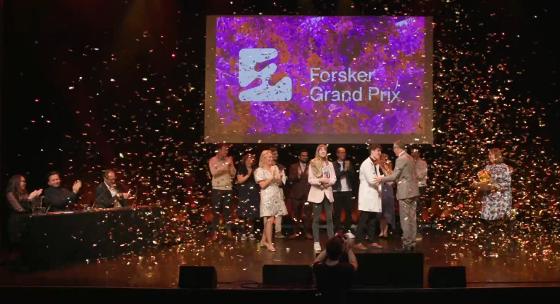
21.09.2024:
ASTI researcher makes the Forsker grand prix final
PhD candidate Vebjørn Melum will represent UiT in the national final of the forsker grand prix.
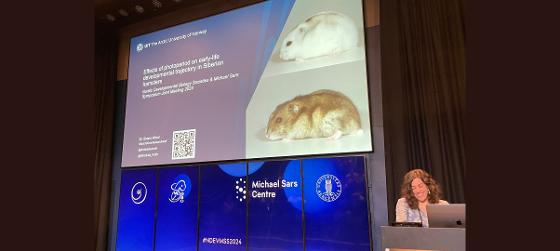
12.06.2024:
Maternal programming invited talk
Invited talk at the Nordic Developmental Biology Societies & Michael Sars Symposium Joint Meeting

24.05.2024:
Sensor cells in the brain wake up hibernating hamsters
ASTI researchers identify cells in the brain that activate during the arousal from hibernation.

15.04.2024:
Hooded seal research makes a big splash
Our work on hooded seals has been highlighted in a popular science article and a early career spotlight
12.02.2024:
PhD position available on Salmonid Biology
Come and join us at ASTI! PhD available in salmonid biology.

01.01.2024:
Svalbard reindeer featured on the cover
A photo of a Svalbard reindeer taken by ASTIs own Shona Wood is featured on the cover of JEB to accompany an ASTI review on clock in the Arctic
18.10.2023:
A podcast on hibernation is available now
Shona Wood recently did a posdcast on hibernation and her recent ERC consolidator award to investigate the role of tanycytes in hibernation

11.09.2023:
Lab/animal technician position available
ERC funded hibernation project needs a lab/animal techncian
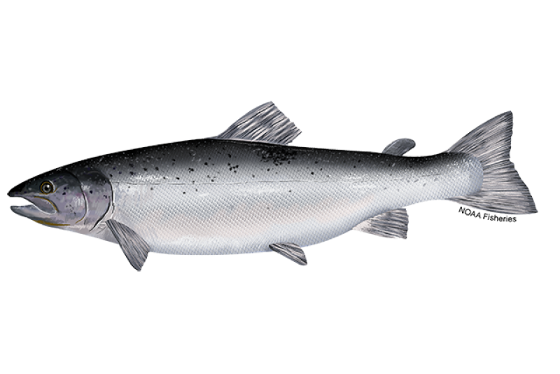
15.06.2023:
Congratulations to David on 12MNOK from the Norwegian research council
ASTI director David has been awarded 12 million NOK from the Norwegian research Council's to lead a major collaborative project
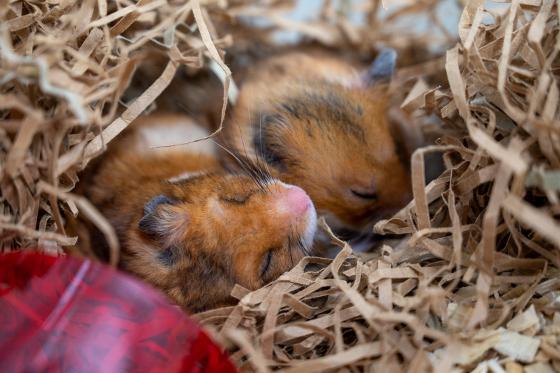
16.04.2023:
Congratulations to Shona on the ERC consolidator grant
ASTI researcher Shona Wood has been awarded 2.2 million euros for hibernation research.
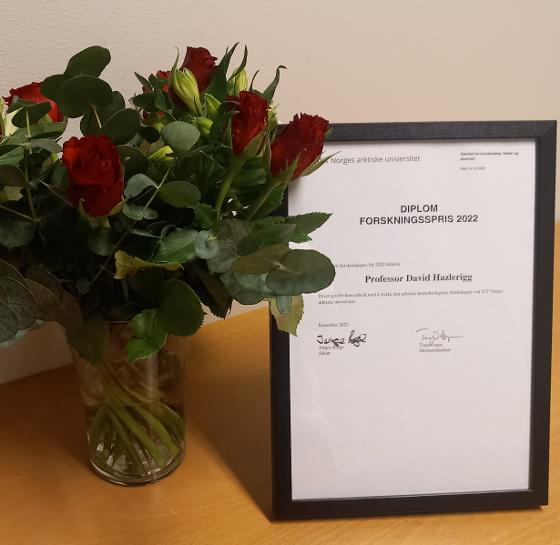
08.12.2022:
Congratulations to David on winning the faculty research prize
David Hazlerigg won the faculty research prize 2022

29.11.2022:
Thank you to the Tromsø forskningsstiftelse
Trond Mohn made a generous gift to establish the Tromsø forskningsstiftelse (TFS), a foundation to support basic research. Both David Hazlerigg and Shona Wood have been supported by the TFS and want to express their thanks to the foundation board and Trond Mohn.
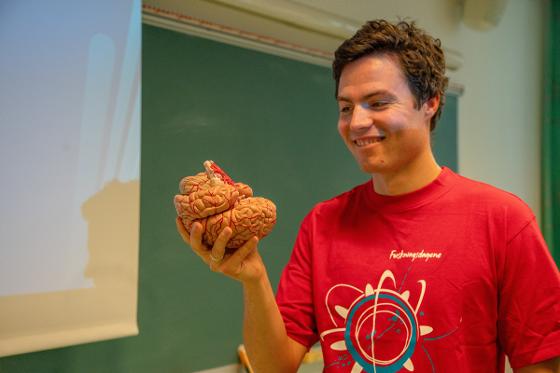
29.09.2022:
ASTI researcher communicates neuroscience at the research days 2022
Last week ASTI PhD candidate Vebjørn Jacobsen Melum helped junior high-school students to explore the brain.
08.04.2022:
ASTI on ice
ASTI members Lars Folkow, Chiara Ciccone and Shona Wood have recently returned from the east coast of Greenland, referred to the West ice (Vestisen) in Norway. The aim was to conduct multiple research projects in the ice but also run a research-led teaching cruise for UiT BIO-2310 students. ASTI aimed to contribute to the specific ASTI research project Clocks, hypoxia and metabolism.
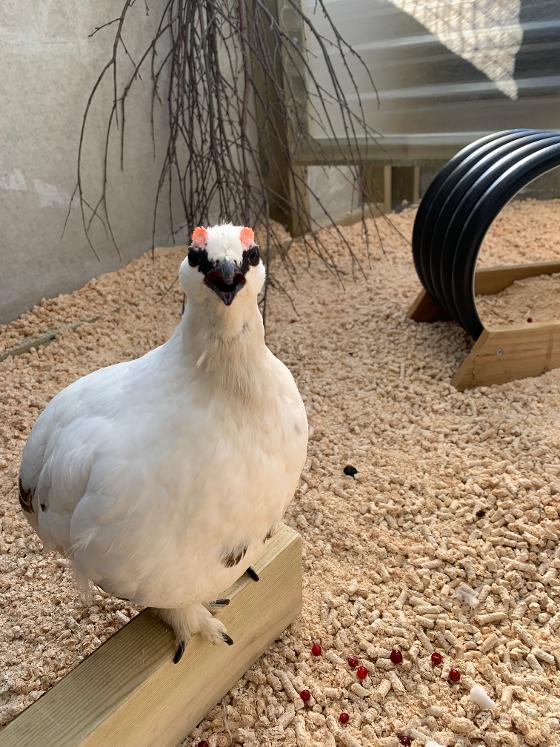
06.04.2022:
Our Svalbard ptarmigan get a new home
This Monday (04.04.2022), we proudly transferred our first Svalbard ptarmigans into the newly finished aviary.
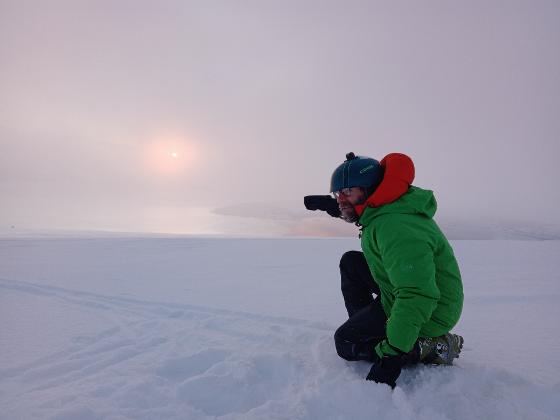
21.01.2022:
ASTI RESEARCHERS MAKE MAJOR (RE-)DISCOVERY
In an exciting development today, senior members of the ASTI research group in Tromsø re-discovered the Sun. This resolves a perplexing puzzle that has been dogging Arctic researchers since mid-November: Why isn´t it getting light anymore?
30.06.2021:
Independent research fellow position available
A 4 year independent research fellow position available within ASTI - with further prospects for permanent appointment.
18.05.2021:
More coverage for our ptarmigan!
06.05.2021:
Ptarmigan research goes mainstream
Do Svalbard ptarmigan need a circadian clock in a rather arrhythmic environment such as the High Arctic? During the polar day and polar night, which makes up 2/3 of their seasonal life, they are active around the clock. This suggests a lack of circadian control over behaviour. However, in a recent study from our ACP-research group we showed that the circadian clock is still an integral part of seasonal timekeeping.
22.04.2021:
NEW HIBERNATION FACILITY ESTABLISHED AT UIT!
We are happy to announce that the new Hibernation research facility is now operational at UiT. The Tromsø forskningsstiftelse (TFS ) award to Dr. Shona Wood and the UiT supported Arctic Seasonal Timekeeping Initiative (ASTI) have made it possible to establish the first hibernation research facility in Norway.
19.04.2021:
Two PhD thesis defended in the same week!
An exciting week for the members of ASTI with two PhD thesis successfully defended.
03.02.2021:
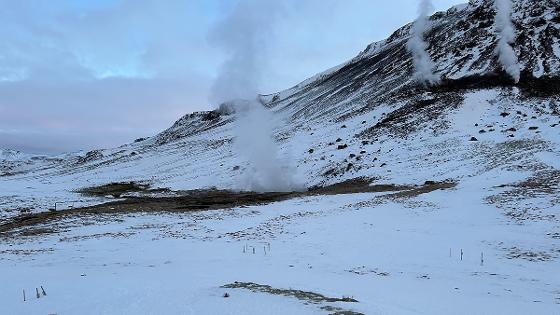


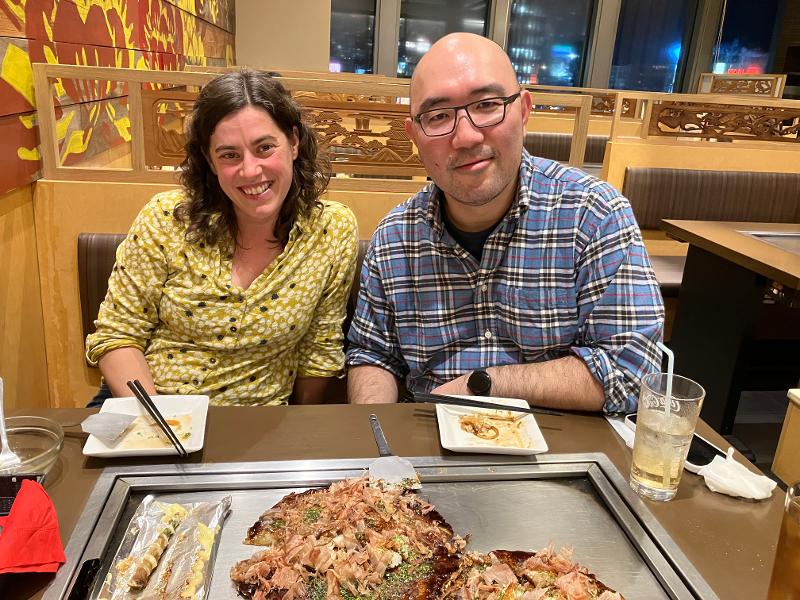
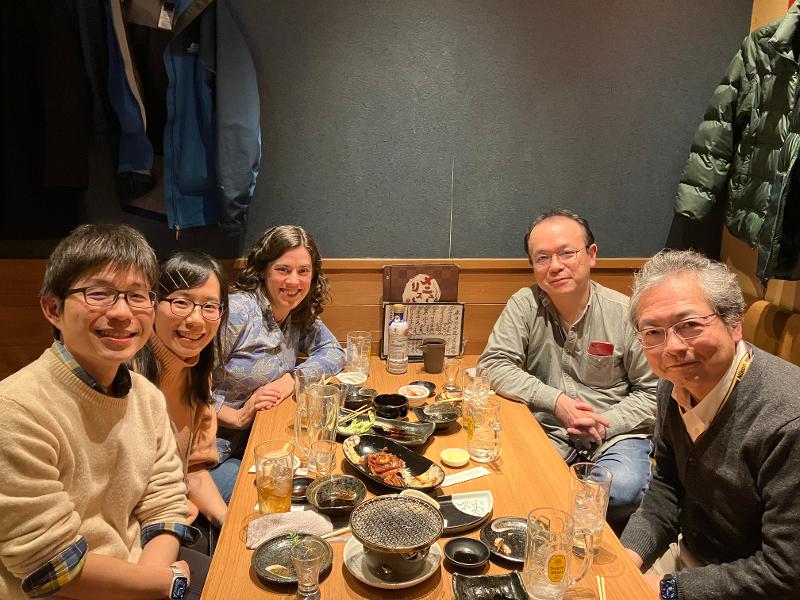
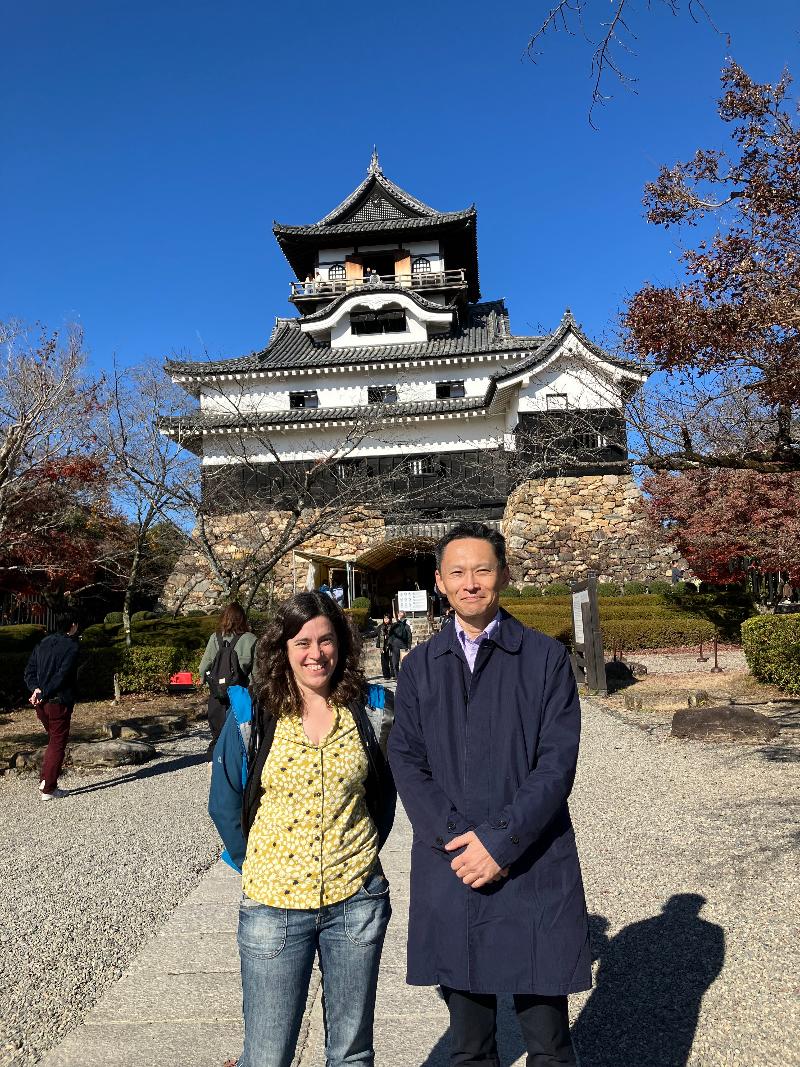
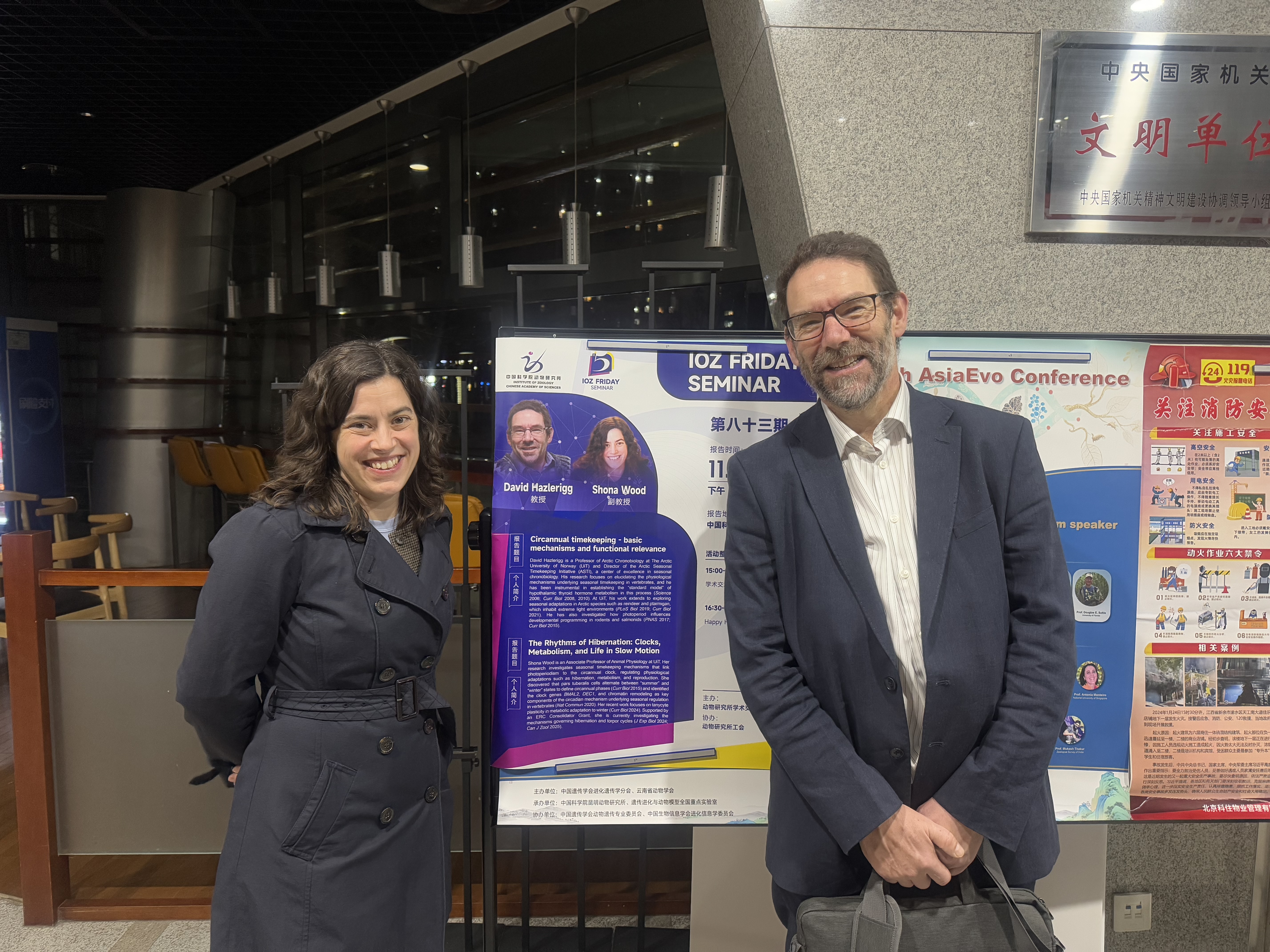
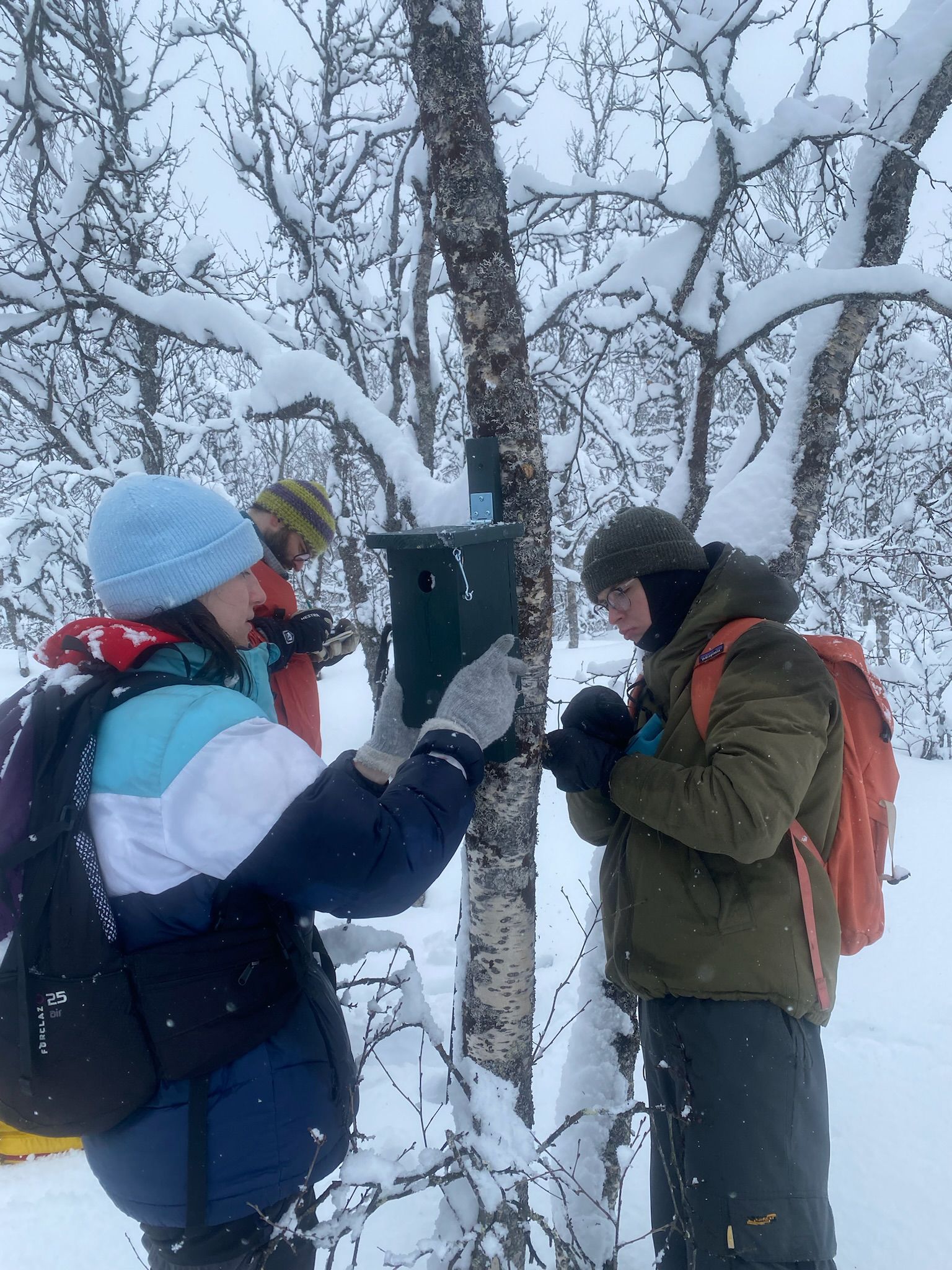

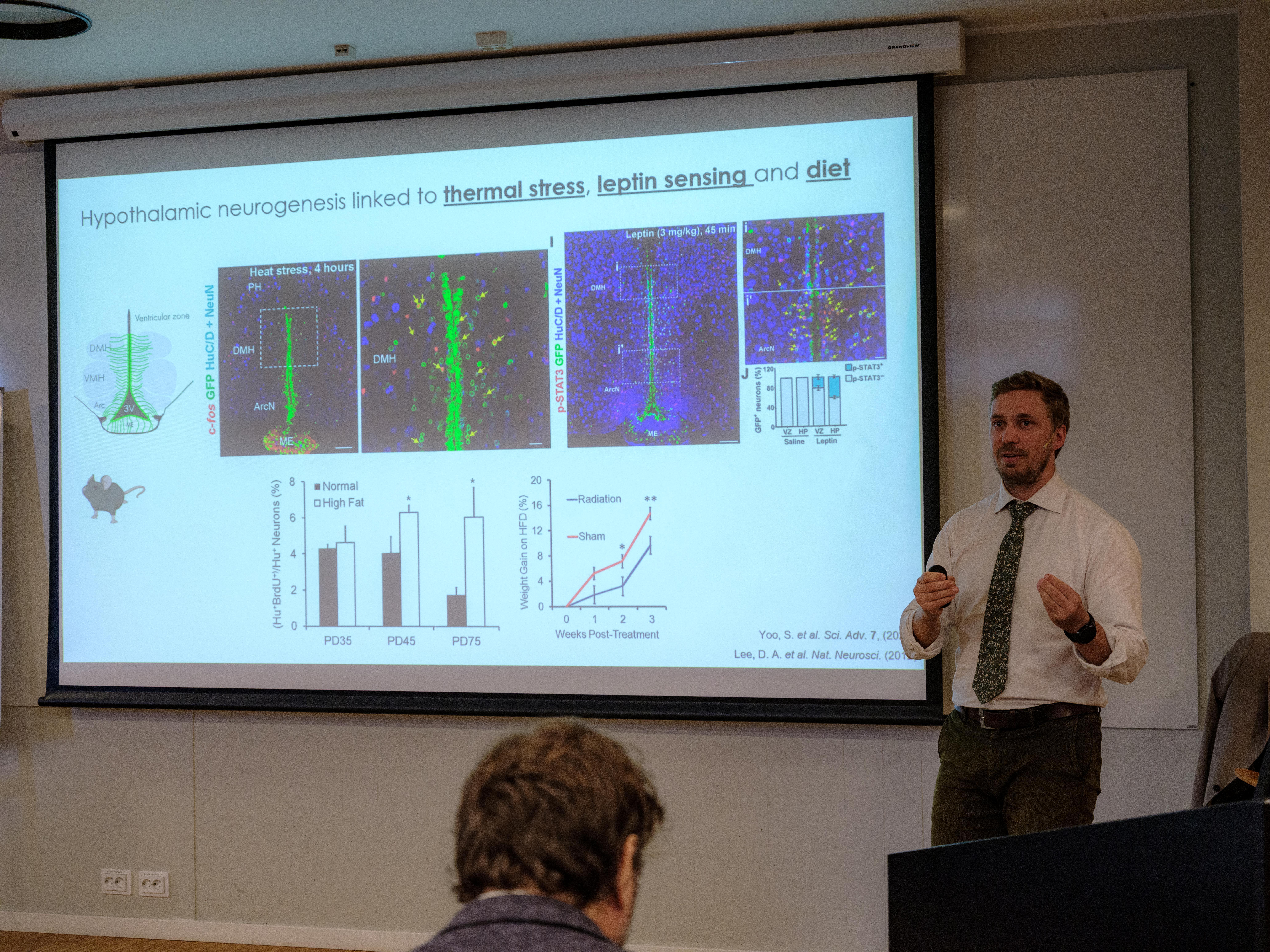
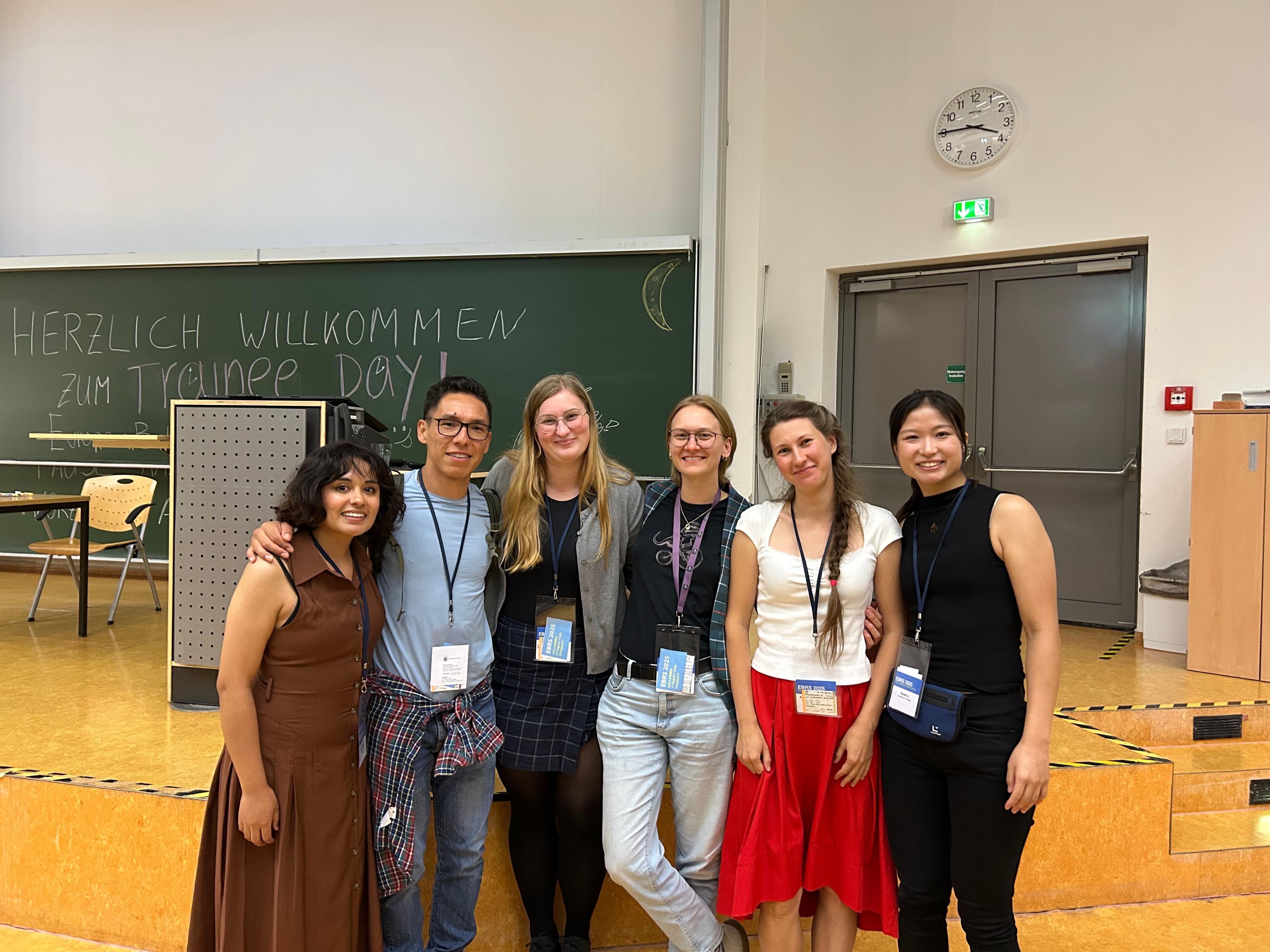
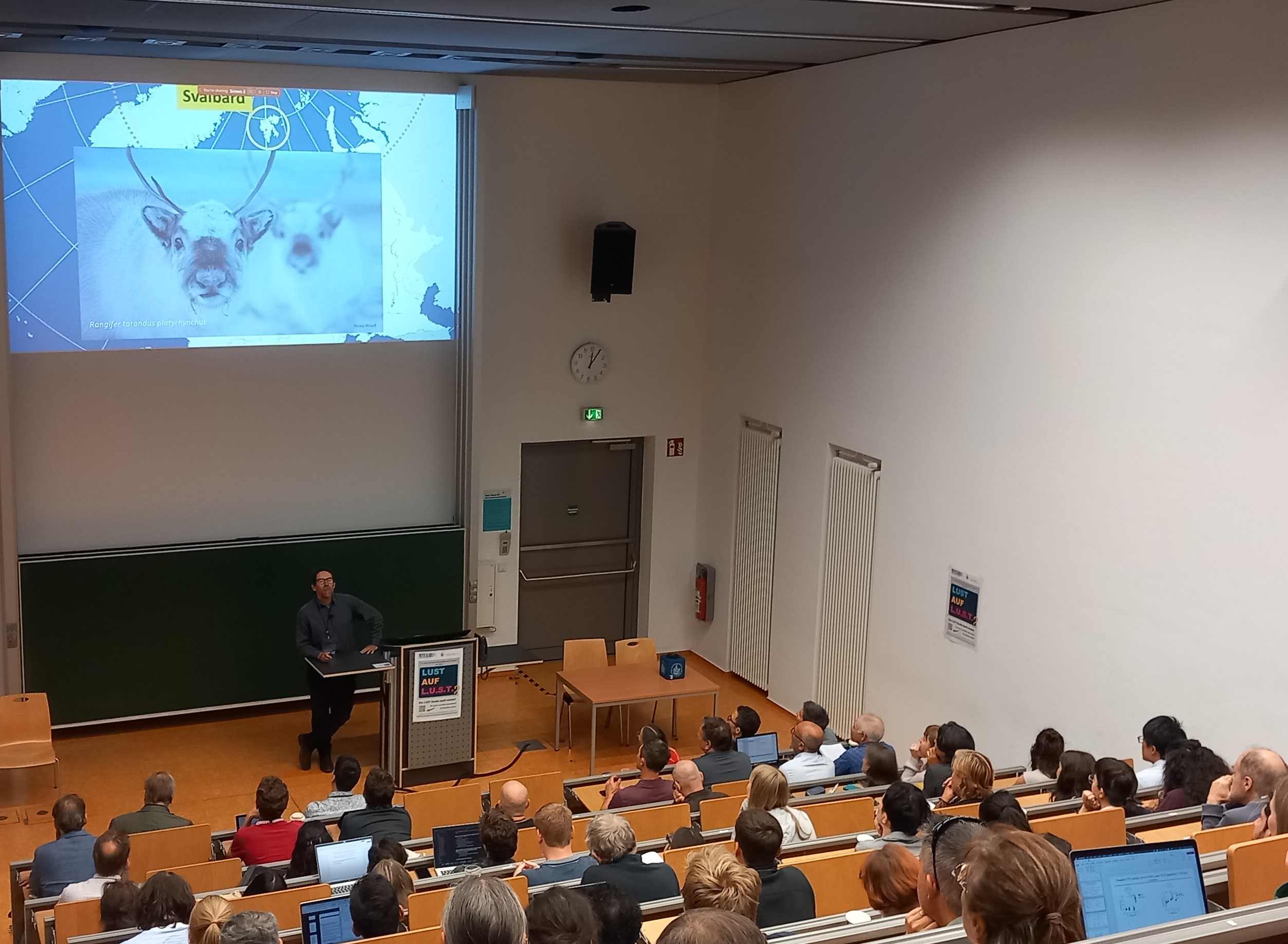
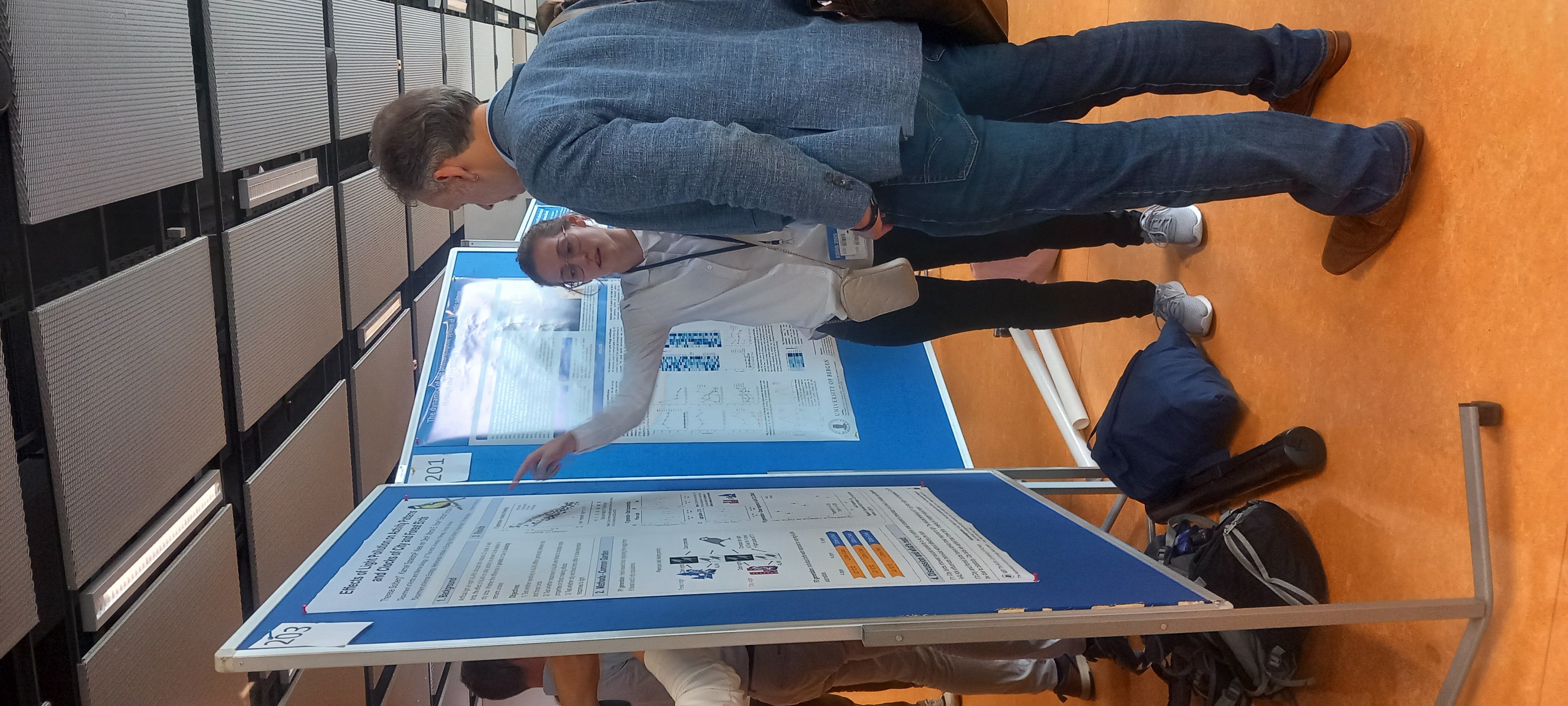 Therese Solberg presenting her work on Great tits Foto: Shona Wood
Therese Solberg presenting her work on Great tits Foto: Shona Wood

